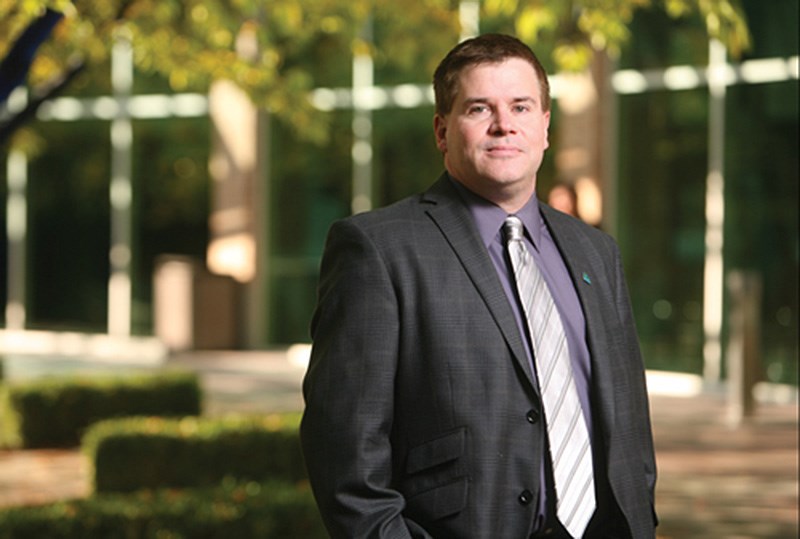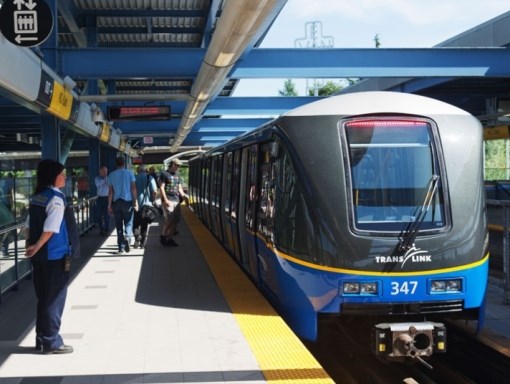Faced with what Port Moody Mayor Mike Clay described as a “take-it or leave-it proposition,” he left it while Coquitlam Mayor Richard Stewart took it. Both weren’t happy about it.
The outcome is motorists in Metro Vancouver will pay another 1.5 cents per litre, on top of the current 17 cents they already pay at the pump, in order to complete the funding for the $7.3-billion Phase 2 of TransLink’s 10-year transportation plan.
The vision includes extending the SkyTrain Millennium line along Broadway in Vancouver to Arbutus, building the first stage of light rapid transit in Surrey, and improvements to TransLink’s current service.
After adding up the federal and provincial government contributions, there was a $70 million a year revenue gap. In March, the province and TransLink agreed on 2% transit fare and 3% parking tax hikes and an average $5.50 per household property tax increase. That covered $40 million, but another $30 million was needed.
It wasn’t until Wednesday when TransLink’s mayors council found out the province’s solution was to raise the contentious gas tax which was estimated would cost the average household an extra $22 a year and should raise up to $33 million in revenue annually. Clay didn’t buy the justification.
“There’s just too much reliance on the gas tax,” said Clay.
Although he admitted all transit infrastructure has to be funded by taxes of some sort, Clay said, the clear message from the public was the gas tax was unfair and that’s why it was taken off the table in March. That was until Wednesday when Municipal Affairs minister Selena Robinson informed the council the gas tax hike would be the way to cover the difference.

“The province sprung this on us very late. It was a take-it or a leave-it proposition,” said Clay. “I support the plan, I want it to move it ahead, I just thought (the gas tax hike) was the wrong one.”
More favourable options to him are increases in sales, parking and vehicle taxes. He also wouldn’t be adamantly opposed to a further increase in property tax.
“It has an inherent balance,” said Clay. “There were a basketful of options we’ve looked at over the years.”
He added he’s a big fan of mobility pricing, but only if the gas tax was reduced. One of the intended outcomes of the gas tax, he noted, is to get people out of their cars to take transit or other alternatives such as cycling or electric vehicles.
“That’s great but then you’ve got no money to pay for buses and more,” said Clay. “The more you bump it up, the less you’re going to get.”
Other mayors who joined Clay in voting against the plan were John McEwen of Anmore, Maple Ridge’s Nicole Read, Jack Froese from Langley Township and Tsawwassen First Nation Chief Bryce Williams.
That, however, didn’t mean the ones that voted for it at Thursday’s joint meeting between the mayors council and the TransLink board, like it either. Many supported the plan anyway because the province made it clear there were no other options, according to Coquitlam’s Stewart.
“The choice the province made to only offer us gas tax as the only source of revenue to fund the regional share was unfortunate,” said Stewart. “That is the one that is least acceptable to the elected officials in the region, in my perspective, and I suspect to our residents. But that was the only one we were given. We were subject to the province’s jurisdiction over the kind of revenue choices we had.
“We have said for years, not just to this government, you can’t run a regional transportation system if you don’t have a sustainable regional source of funding, and we don’t. It’s been promised repeatedly and here we are once again having to go to the province for permission to raise the funds for the regional share of an investment program.”
Stewart noted the hike will motivate many motorists to go outside of Metro Vancouver to purchase gas and there could end up being a “leakage of revenue.”
“I worry that putting it all on a gas tax runs the risk of not seeing the revenue we actually need,” said Stewart.
One option he’d like explored is a land-lift charge which would levy a fee to landowners next to transit who stand to make a windfall.
“Land around stations goes up in value enormously, and there are measures that can be used to capture that sort of increase,” said Stewart.
He cited the city’s Lincoln SkyTrain station being paid entirely by land-lift fees as an example of what could be accomplished. There is potential to do the same with the Millennium Line extension and the at-grade Surrey lines.
“When governments build rapid transit line there is windfall profits from landowners. We’re not talking about taking all of it, (we) need a little bit of the windfall to fund (future improvements),” said Stewart. “I still think that has a tremendous potential to fund, as it did here in Coquitlam, to fund that infrastructure.”



